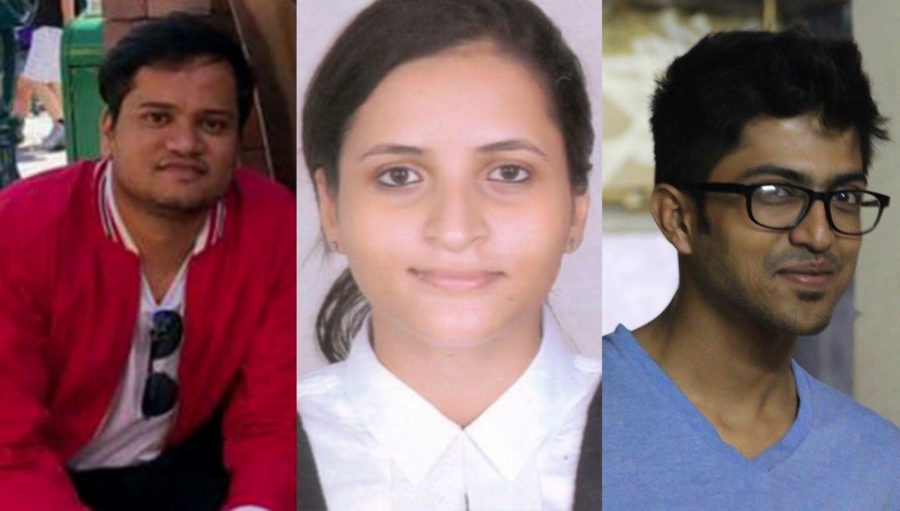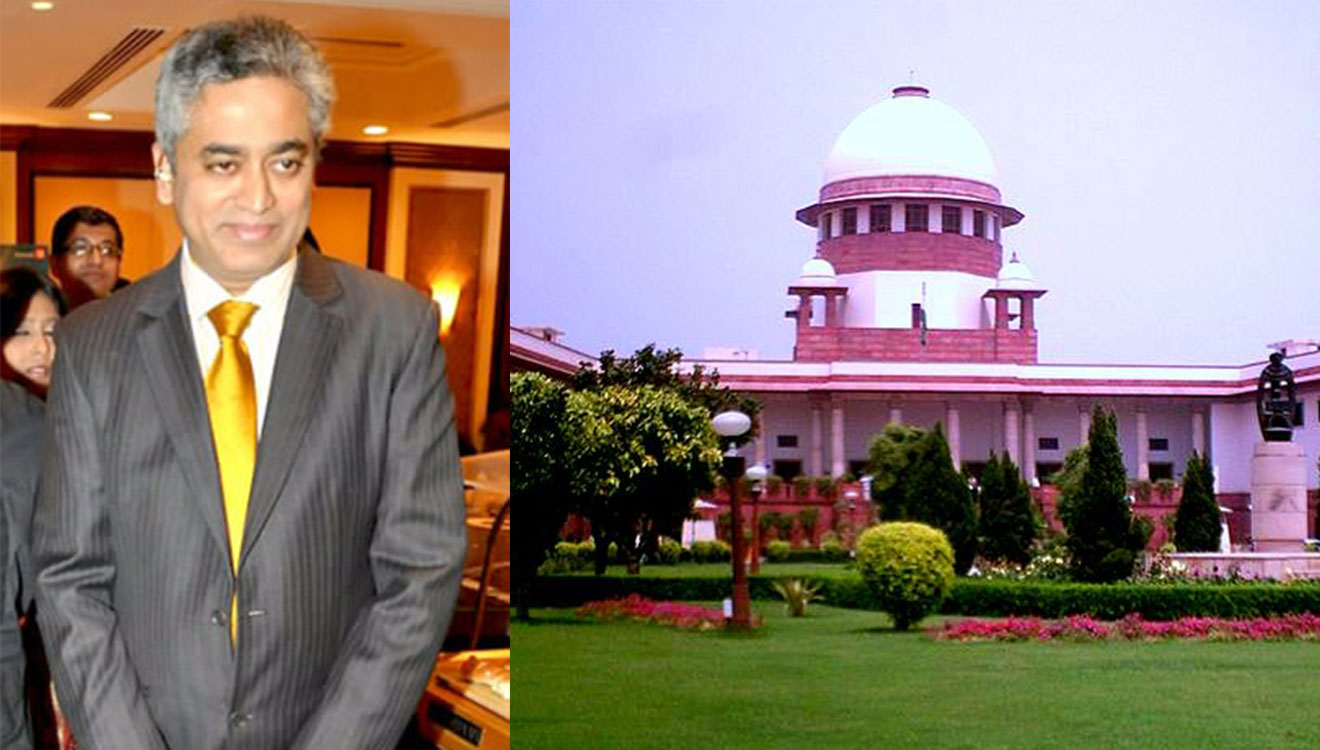Nikita Jacob, the Mumbai-based lawyer and activist, and Pune-based activist Shantanu Muluk, who were arrested by the Delhi Police in connection with the ongoing farmers’ protest toolkit case, withdrew their anticipatory bail application on Monday, Live Law reported.
Greta Thunberg was one of the international icons among several others to raise concerns and support the protesting Indian farmers, drawing global attention to the issue. She had attached a toolkit in her tweet thread on February 3, which she later deleted. On February 4, she posted an updated toolkit.
Here’s an updated toolkit by people on the ground in India if you want to help. (They removed their previous document as it was outdated.)#StandWithFarmers #FarmersProtesthttps://t.co/ZGEcMwHUNL
— Greta Thunberg (@GretaThunberg) February 3, 2021
A toolkit is a social media document or booklet which explains an issue or cause. It contains all the details, a set of guidelines, that are necessary for an individual to make their contribution to supporting a particular cause. In context to protests, a toolkit comes with a methodology of the protest including guidelines for social media protests and materials to contextualise the cause or issue.
Thunberg’s updated toolkit contained information on the ongoing farmers’ protest, the “urgent” and “prior” actions that can be taken to help and support them, such as suggestions about signing petitions, mailing government officials, trending hashtags #StandWithFarmers and #FarmersProtest or protesting in front of government offices and Indian embassies.
The Delhi Police on February 4 filed a First Information Report (FIR) against the creators of the toolkit that was shared by Thunberg mentioning that no one was named in the FIR.
In this process,they all collaborated with pro Khalistani Poetic Justice Foundation to spread disaffection against the Indian State. She was the one who shared the Toolkit Doc with Greta Thunberg. @HMOIndia @LtGovDelhi @CPDelhi
— #DilKiPolice Delhi Police (@DelhiPolice) February 14, 2021
On February 12, Jacob was arrested following a raid in her residence after a non-bailable warrant issued against her regarding her involvement in the case. At the same time, Muluk was arrested from Pune and both were accused of editing the toolkit.
On February 14, a 21-year-old Bengaluru-based climate activist Disha Ravi was arrested from her house in Bengaluru on the accusation of “conspiracy” against the Indian government, as well as editing and circulating the toolkit. After a three-hour-long hearing, as the Delhi Police failed to produce any evidence that could prove a direct link between Ravi and the actions that led to the January 26 violence, she was granted bail by the Patiala House Court on February 23.
Meanwhile, Muluk was granted bail by the Aurangabad Bench of the High court on February 16 and Jacob was granted transit bail of three weeks by the Bombay High Court on February 17.
March 15 Hearing
On Monday, the Patiala House Court heard the anticipatory bail plea for the protection from arrest for Jacob and Muluk both working with Extinction Rebellion Organisation and Subham Kar Chaudhuri who is the president of The Food Truck Association allegedly in connection with “pro-Khalistani” groups and creating the toolkit that allegedly led to the January 26 violence where a farmer died.
Advocate Soutik Banerjee, who represented Chaudhuri, said seeking adjournment that he was not served with any annexure. So, the court extended his protection for a day and said his matter will be heard on Tuesday.
According to advocate Vrinda Grover representing Muluk, Ex R is not an NGO but a client of Climate 2025 (a registered private limited company in UK) that does a five-year change-making mission.
“I am a private limited company providing a corporate support to Ex R. There is no anti national activity taking place,” said Grover.
Grover mentioned that since Muluk’s arrest and later his transit anticipatory bail, he has been cooperating and joining all the interrogating sessions that took place every day from 10.30 am till midnight except weekends and a Tuesday for the past 18 days. He mentioned that as the hearing was underway, Muluk was being interrogated.
Muluk started working with Ex R in 2019, while Jacob joined the organisation in September 2020 which is a “global organisation where people join out of their own will for taking part in environmental issues.”
The lawyers also mentioned in the court that the accused did not know each other prior to the investigation.
Grover denied Muluk having any connection with Sikhs For Justice (banned) and the same for Poetic Justice Foundation (not banned) except for one video call interaction with the latter. He joined the video call along with a colleague on January 11, for which Ex R India had received the communication through Instagram.
Banerjee also added that the account was accessible at any point to every member at Ex R.
On December 6, Ravi created a WhatsApp group for international farmers strike to which Jacob was later added on January 11, which she exited after a few days on January 24 as well.
Advocate Rebecca John representing Jacob claimed that she was informed about the same video call by her colleague in Ex R which she attended.
The video call had 70-80 global participants, but according to Grover, Muluk knew no one except his colleague and hence he was merely a listener.
“In that call, there are no remarks made about Khalistan or any secessionist. I don’t know who MO Dhaliwal is,” said Grover.
The allegations made by the Delhi Police were based on the ground that the founders of the Poetic Justice Foundation were Dhaliwal and Amita Lal who are “staunch Khalistanis” were a part of the video call.
Recommended
Accusing them of “hidden agenda”, the APP said they “provoked” people against the country while expressing solidarity.
While John said that Jacob’s participation in the toolkit or the zoom call can not be called “sedition”, Grover remarked that neither did Muluk share the ‘toolkit’ nor is sharing it an “offence”.
The APP and the Delhi Police informed that that investigation is in its initial stage, to which the court argued that there were many “gaps” left unaddressed due to lack of material on record.
A single bench of ASJ Dharmender Rana ordered that the applications stand disposed of as withdrawn after the applicants sought withdrawal on the condition that advance notice of seven days should be given to the accused in case of arrest so that they can exercise their legal remedies.



